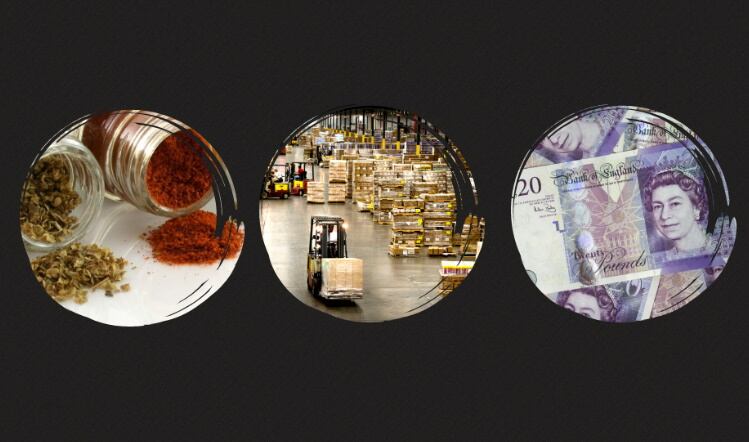A survey of the Food and Drink Federation’s (FDF’s) members gauged how business sentiment evolved across the food and drink manufacturing sector in the third quarter of 2019, in comparison to previous quarters.
FDF members listed the key impacts to their business in the last quarter, chief among them being the increased cost of stockpiling in preparation for a no-deal Brexit (according to 67% or respondents), with members spending a total of £100m a week. This was followed by increased ingredients costs (62%) and an increase in average wages (60%).
Unsatisfied with Brexit preparedness
On the topic of Brexit, only 7% of respondents said they were satisfied with the level of guidance offered by the Government to help them prepare for the UK leaving the EU – 62% were dissatisfied, while 31% said they were neither satisfied nor dissatisfied.
When asked about their concerns on the wider economy for the rest of 2019, 87% of food and drink firms predicted there would be a decrease in temporary labour supply, while 81% said there would be a further increase in input costs.
According to the report, net confidence declined by 20 percentage points since the FDF started reporting in 2018. Up to half of all respondents reported declining product margins in the third quarter of the year.
Opportunities to grow
However, a number of opportunities were identified by producers. Top of the list was the potential for increased domestic demand, likely in response to the UK leaving the EU and losing access to the Single Market.
Taking the second spot was planned investment in new machinery, followed by increased certainty over the UK’s future EU relationship – boosted by the prospect of a deal being secured between the UK and EU governments.
Meanwhile, sections of the food manufacturing industry have warned the Government that a no-deal Brexit would “destroy” many businesses, with experts slamming the recent Preparedness Campaign.





